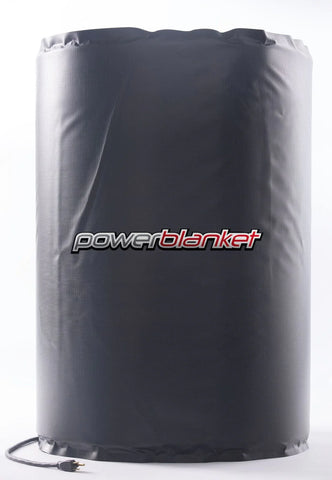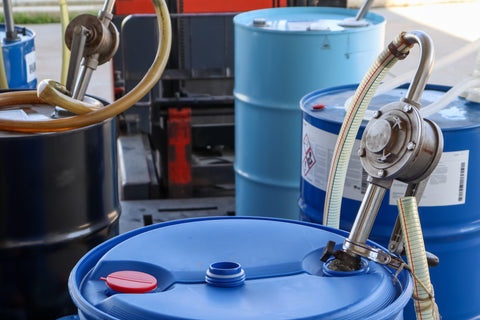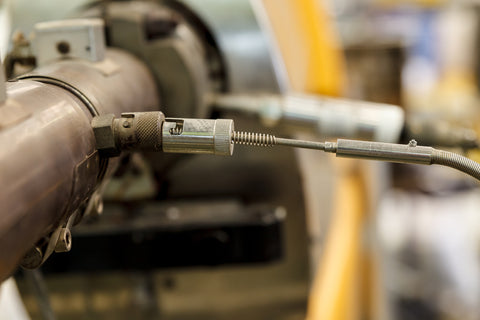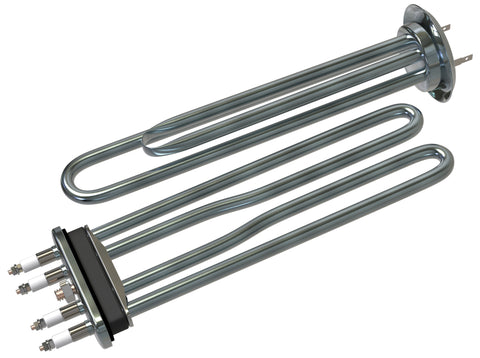As the winter approaches, oil field operations face unique challenges that can significantly impact productivity and safety. The harsh winter weather, characterized by freezing temperatures, snow, and ice, demands meticulous planning and robust maintenance strategies. This article delves into essential oil field winter maintenance practices, ensuring that your operations remain efficient and resilient against winter obstacles.
The Impact of Cold Weather on Successful Operations
Winter weather creates many challenges for oil field operations, from freezing temperatures to heavy snowfall. Understanding these impacts is crucial for implementing effective maintenance strategies.
How does winter affect oil production?
Challenges Faced When the Temperatures Drop
-
Freezing Temperatures: One of the most significant challenges can cause fluids to solidify, leading to blockages and equipment malfunctions.
-
Equipment Malfunctions: Cold weather can increase wear and tear on heavy machinery, causing unexpected breakdowns and delays.
-
Delays in Operations: Winter weather creates transportation issues and can delay drilling operations, impacting overall production timelines, including those related to oil and gas extraction and natural gas production.

Preparing for Winter: Strategies for Effective Winter Maintenance
To ensure that oil field operations run smoothly during the winter, it is essential to implement proactive maintenance strategies. These measures can help prevent equipment failure and minimize downtime, ensuring that production remains consistent and safe.
Winterization of Equipment
-
Insulation and Heating: Insulate pipes, valves, and other critical components to protect them from the damaging effects of colder weather. Use heating elements or heat tracing systems to maintain the temperature of fluids, including natural gas, and prevent them from solidifying.
-
Cold-Weather Lubricants: Use lubricants that are specifically designed for cold weather conditions. These lubricants remain effective at lower temperatures and help to reduce friction and wear on moving parts, including those used in heavy machinery.
Regular Inspections
-
Scheduled Inspections: Regularly inspect all equipment to identify potential issues before they become major problems. This includes checking for signs of wear and tear, corrosion, and other damage that could be exacerbated by cold weather, such as pressure drops in pipelines.
-
Routine Maintenance: Perform routine maintenance tasks such as lubricating moving parts, tightening loose connections, and replacing worn components. This helps to ensure that equipment operates efficiently and reduces the risk of unexpected breakdowns.
Methanol Injection
Methanol injection is an effective method to prevent freezing in pipelines and other equipment. By injecting methanol into the system, you can lower the freezing point of fluids, such as natural gas, ensuring smooth flow and reducing the risk of blockages.

Ensuring Safety During Winter Operations
Safety is paramount during winter operations. Implementing robust safety protocols can protect oil rig workers and minimize the risk of accidents.
Personal Protective Equipment (PPE)
Providing appropriate PPE is crucial for safeguarding workers against cold weather hazards. Thermal clothing, insulated gloves, and anti-slip footwear are essential for maintaining warmth and preventing injuries. Ensure that all personnel are trained in the proper use of PPE.
Emergency Preparedness
-
Spare Parts Inventory: Maintain a well-stocked inventory of spare parts to address any equipment failures that may occur quickly. This includes critical components such as control valves, breather plugs, and pressure regulators.
-
Emergency Response Plan: Develop and implement an emergency response plan to address potential winter-related incidents. This plan should include procedures for dealing with equipment failures, transportation delays, and other challenges that may arise in cold weather.
Advanced Maintenance Techniques for Oil Field Winter Operations
Advanced maintenance techniques are essential to ensure the longevity and efficiency of oil field operations during the winter months. These methods go beyond basic preventative maintenance and address the specific challenges of cold weather.
Maintaining efficient and safe oil field operations during the winter months requires continuous monitoring and the ability to adjust operations as needed. This section outlines key strategies for monitoring and adjusting operations to ensure optimal performance and safety.
Real-Time Monitoring Systems
Implementing real-time monitoring systems can provide valuable insights into equipment performance and the oil field's overall status. These systems can help identify potential issues early and allow for timely interventions.
Remote Monitoring Technology
Investing in remote monitoring systems can provide real-time data on equipment performance and weather conditions. These systems enable operators to detect issues early and take corrective actions before they escalate. Remote monitoring is particularly beneficial for natural gas facilities and offshore platforms, where manual inspections may be challenging during winter storms.
-
Sensors and IoT Devices: Utilize sensors and Internet of Things (IoT) devices to monitor critical parameters such as temperature, pressure, and flow rates. These devices can provide real-time data and alerts, enabling quick responses to any anomalies, including pressure drops in pipelines.
-
Data Analytics: Leverage data analytics to analyze the information collected from monitoring systems. This can help identify trends and patterns indicating potential problems, allowing for proactive maintenance and adjustments, particularly in gas production facilities.
-
Implement automated control systems to manage equipment operations and make real-time adjustments based on monitoring data. These systems can help optimize performance and reduce the risk of equipment failure.
-
Ensure control systems can be accessed remotely, allowing operators to make adjustments and respond to issues without needing to be physically present at the site.
Winterization Strategies for Equipment and Fluids
Maintaining the functionality of materials and equipment during cold winter temperatures is critical to preventing disruptions in oil field operations. Key strategies include keeping materials warm and viscous, protecting commonly affected equipment, and using effective insulation, heating, and fluid management techniques.
Insulation and Heating Solutions: Keeping Materials Warm and Viscous
Cold temperatures can cause critical materials, such as crude oil and natural gas, to thicken or solidify, leading to pipeline blockages and equipment malfunctions. Maintaining the proper viscosity of these materials is essential to prevent these issues. This can be achieved by utilizing winter-grade lubricants and antifreeze solutions that remain effective in low temperatures. Monitoring fluid levels and viscosity also helps ensure that equipment operates smoothly, even in freezing conditions.
Proper insulation and heating solutions are vital for maintaining the functionality of oil rigs and other production equipment in cold weather. Insulating barrels of oil and totes, control valves, breather plugs, and pressure regulators prevents freezing, ensuring smooth operation. Additionally, utilizing heat tape and heating units helps maintain optimal temperatures for sensitive equipment, significantly reducing the risk of malfunctions and ensuring reliable performance throughout the winter months.

Enhanced Fluid Management
Effective fluid management is essential to maintain equipment performance and prevent damage in cold weather. Techniques like using cold-weather lubricants and antifreeze solutions tailored to the oil field's specific needs help mitigate the effects of low temperatures on equipment. Ensuring that all fluids are maintained at proper levels and monitored regularly for changes in viscosity will prevent blockages and mechanical failures, thereby reducing downtime and maintaining operational efficiency.
By combining these winterization strategies, operators can better protect their materials and equipment, ensuring continuous, efficient, and safe operations throughout the colder months.
Continuous Improvement Strategies
Continuous improvement is vital for maintaining efficient and safe oil field operations during the winter. Operators can adapt to changing weather conditions and technological advancements by regularly evaluating and updating maintenance practices.
Environmental and Regulatory Considerations
Winter maintenance in oil field operations requires not only ensuring the efficiency and safety of equipment and personnel but also strict adherence to environmental and regulatory standards. Key considerations during cold weather include environmental protection, regulatory compliance, and health and safety regulations.
Environmental Protection Measures
It is crucial to prevent oil field operations from negatively impacting the environment, especially in winter when conditions can exacerbate potential hazards. To prevent environmental contamination, operators should implement secondary containment systems around storage tanks and critical equipment, such as dikes, berms, and double-walled tanks. Additionally, spill response kits should be readily accessible, equipped with absorbent materials, containment booms, and other necessary tools, with workers properly trained in their use to ensure swift and effective responses to spills.
Waste management practices must involve the proper disposal of all waste materials, including used lubricants, filters, and hazardous substances, in accordance with environmental regulations to prevent soil and water contamination. Recycling programs for materials like metal, plastic, and used oil not only help reduce environmental impact but also provide cost savings through the reuse of materials. Protecting local wildlife habitats is also vital, which involves creating buffer zones around sensitive areas, minimizing noise and light pollution, and conducting regular monitoring of wildlife populations to identify any potential impacts from operations and develop mitigation strategies that comply with environmental regulations.
Regulatory Compliance
Adhering to local and international regulations is essential to maintain legal and operational standards in oil field operations. Operators must obtain all necessary permits and approvals before starting winter maintenance activities, including permits for emissions, waste disposal, and water usage. Maintaining accurate records of all maintenance activities and environmental monitoring data is also critical, with required reports submitted to regulatory agencies promptly. Emission control technologies and practices should be implemented to reduce emissions from equipment and operations, such as using low-emission engines, optimizing fuel usage, and utilizing vapor recovery systems. Regular air quality monitoring helps ensure emissions remain within regulatory limits, allowing for the early identification of potential issues and the implementation of corrective actions.
Health and Safety Regulations
Ensuring health and safety during winter maintenance activities is critical for protecting workers from cold-weather hazards. Compliance with health and safety regulations includes adhering to standards for personal protective equipment (PPE), providing adequate training, and preparing for emergency responses. Regular training sessions and emergency drills are essential to ensure all personnel are ready to handle winter-specific challenges, such as equipment shutdowns, spill response, and evacuation procedures. Additionally, safety measures at the worksite should be implemented to address winter hazards, including clearing snow and ice from walkways, using anti-slip materials, and ensuring that emergency equipment is readily accessible.
In the event of incidents or accidents, prompt reporting to the appropriate regulatory agencies is required, followed by thorough investigations to identify root causes and implement corrective actions to prevent recurrence.
Final Thoughts and Best Practices for Winter Operations
Effective maintenance is essential for ensuring the safety and efficiency of operations during the cold months. By understanding the impact of winter weather, implementing advanced maintenance techniques, and continuously improving practices, operators can overcome winter's obstacles and maintain productivity.
Key Takeaways
-
Understanding Winter Weather: Recognize the challenges posed by cold weather, including freezing temperatures, snow, and ice, and their impact on oil rigs and other equipment.
-
Preparation and Maintenance: Implement preventative maintenance measures such as winterizing equipment, conducting regular inspections, and using methanol injection to prevent freezing.
-
Safety Protocols: Ensure the safety of oil rig workers through appropriate PPE, emergency preparedness, and regular training and drills.
-
Advanced Techniques: Utilize insulation, heating solutions, enhanced fluid management, and remote monitoring systems to maintain equipment efficiency.
-
Continuous Improvement: Leverage data analytics, foster collaboration, and embrace innovation to adapt to changing conditions and improve maintenance practices.
By following these guidelines, oil field operators can ensure that their operations remain resilient and efficient throughout the winter months, providing much-needed fuel and maintaining the nation's energy infrastructure.







